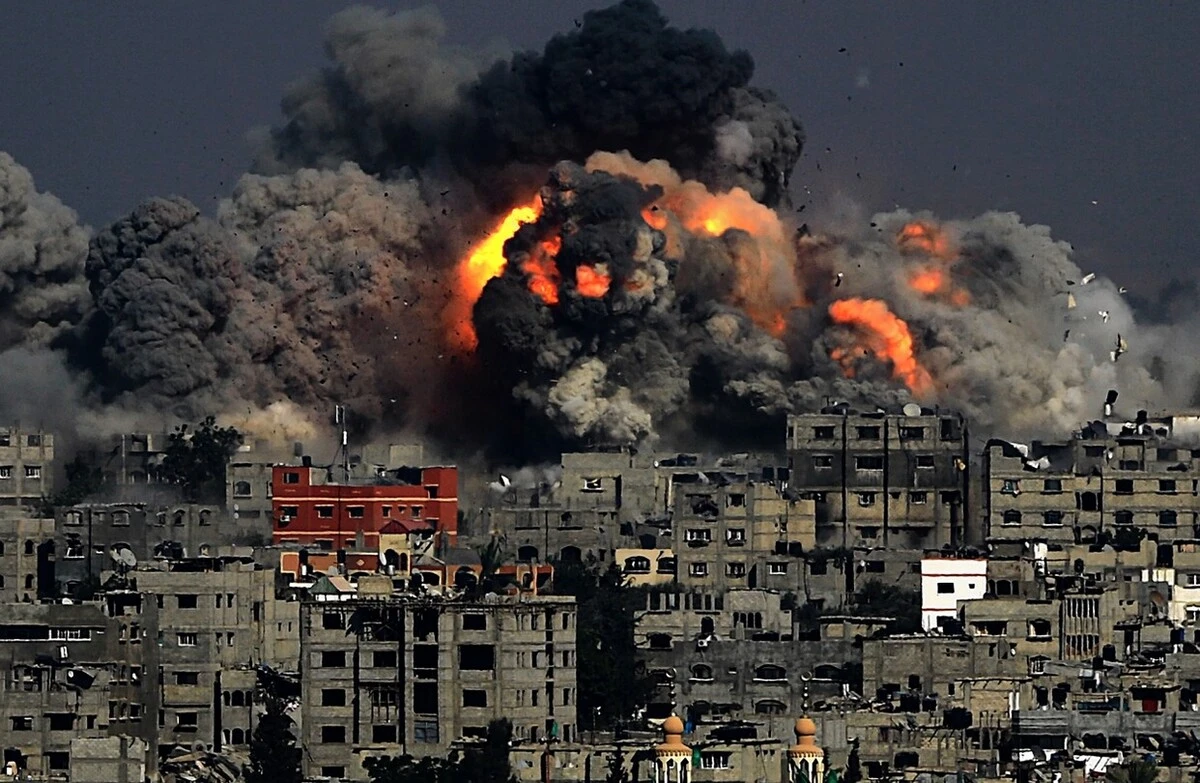The ongoing conflict in Gaza has not only inflicted profound human suffering but also caused unprecedented environmental damage, according to a preliminary assessment published today by the United Nations Environment Programme (UNEP).
The report details how rapidly escalating soil, water, and air pollution risks irreversible harm to Gaza’s natural ecosystems, prompting UNEP to reiterate its call for an immediate ceasefire to protect lives and mitigate the environmental crisis.
“In addition to the untold suffering of Gaza’s people, the significant and growing environmental damage risks locking its inhabitants into a prolonged and painful recovery,” stated Inger Andersen, UNEP Executive Director.
“People are already facing the consequences of damaged environmental management systems and increased pollution. With water and sanitation systems collapsing and critical infrastructure decimated, coastal areas, soil, and ecosystems are severely impacted. This situation deeply harms people’s health, food security, and Gaza’s resilience.”
For decades, Gaza’s environment has been under pressure from recurring conflicts, rapid urbanization, high population density, and vulnerability to climate change. The UNEP’s preliminary assessment reveals the war has undone recent progress in environmental management, including advances in water desalination, wastewater treatment, solar power, and coastal wetland restoration.

Key Findings of the UNEP Assessment:
– Debris Accumulation: The conflict has generated an estimated 39 million tonnes of debris, equating to over 107 kg of debris per square meter in Gaza. This volume is more than five times the debris from the 2017 Mosul conflict. The debris, contaminated with hazardous substances and unexploded ordnance, poses significant health and environmental risks.
– Water and Sanitation Crisis: Gaza’s water, sanitation, and hygiene systems are nearly entirely defunct. The shutdown of five wastewater treatment plants has led to sewage contamination of beaches, coastal waters, soil, and freshwater, presenting immediate and long-term health threats to residents, marine life, and arable lands.
– Solid Waste Management: Severe damage to five out of six solid waste management facilities has resulted in 1,200 tonnes of rubbish accumulating daily around camps and shelters. A shortage of cooking gas has forced families to burn wood, plastic, and waste, degrading air quality and endangering health.
– Pollution from Munitions: Heavy metals and explosive chemicals from munitions deployed in densely populated areas are contaminating soil and water, posing persistent health risks. Unexploded ordnance poses a particularly grave threat to children.
– Solar Panel Destruction: Damage to solar panels is expected to leak lead and other heavy metals, introducing new risks to soil and water quality.
– Tunnel System Impact: The destruction of Hamas’ tunnel system and Israel’s efforts to dismantle it may contribute to groundwater contamination and create unstable land surfaces.
Call for Immediate Action
The UNEP report emphasizes that addressing these environmental challenges is critical for the health and recovery of Gaza’s population and must be integrated into reconstruction plans. An in-depth environmental analysis, including contamination assessments, should be a cornerstone of recovery efforts.
“The need for a ceasefire is urgent not only to save lives but also to allow the environment to recover. This will enable Palestinians to begin rebuilding their lives and livelihoods,” Andersen urged.
Limited by the ongoing security situation and access restrictions, the UNEP assessment relied on remote sensing, data from Palestinian technical entities, consultations with multilateral partners, and unpublished UN field activity material.
















